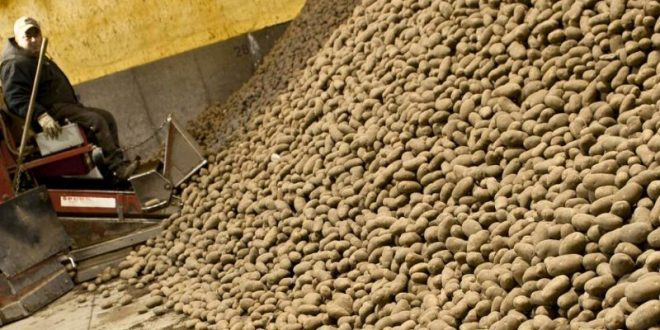#OrganicAgriculture #PotatoStorage #SustainableFarming #USDAGrant #AgriculturalResearch #OrganicIndustry #PlantEssentialOils #EnvironmentalSustainability #AgriculturalInnovation #CropScience
In response to the escalating demand for organic products, particularly potatoes, the U.S. Department of Agriculture (USDA) has allocated USD2 million to researchers at Oregon State University. The focus of this funding is to discover advanced methods for preventing potato sprouting during storage, a critical issue for the organic sector, where traditional chemical anti-sprouting treatments are not an option.
Valtcho Jeliazkov, associate professor in OSU’s Department of Crop and Soil Science, emphasizes the urgency of this research, given the remarkable growth of the organic industry in American agriculture. The ban on synthetic chemicals in certified organic products poses a unique challenge for the organic potato industry. As of 2022, U.S. organic food sales exceeded USD60 billion for the first time, with Oregon, Washington, and Idaho contributing over 60% to the total potato production in the U.S., making Pacific Northwest potato cultivation a USD2.2 billion industry.
Jeliazkov highlights the financial implications of sprouting in organic potatoes, affecting qualities such as appearance, taste, and texture. Traditional chemical treatments, notably chlorpropham (CIPC), have been the go-to solution, but their environmental and health concerns led to a recent ban in the European Union. This situation prompted a shift towards natural alternatives in organic storage, though they lack the efficiency of CIPC, resulting in higher costs due to frequent applications.
The OSU research team, led by Jeliazkov and Kyriakos Stylianou, assistant professor of chemistry, aims to revolutionize anti-sprouting strategies. They are exploring the use of plant essential oils, studying around 200 different varieties for their inhibitory effects. The team is developing polymers shaped as hollow beads to gradually release these oils, enhancing their longevity in preventing sprouting. The size of these beads will be optimized, and experiments will involve spraying potatoes to assess the impact on sprouting.
To ensure safety, toxicity experiments will be led by Robyn Tanguay, university distinguished professor of environmental and molecular toxicology, and associate professor Lisa Truong. Neal Stewart of the University of Tennessee will examine potato tuber chemistry and hormonal balance post-treatment.
Funded by the USDA’s National Institute of Food and Agriculture through the Organic Agricultural Research and Extension Initiative, this research marks a significant step towards sustainable and effective solutions for organic potato storage.
Oregon State University’s groundbreaking research, fueled by USDA funding, signifies a crucial step in addressing the challenges of organic potato storage. As the organic industry continues to thrive, finding alternatives to traditional chemical treatments becomes imperative. The innovative approach of utilizing plant essential oils and polymers demonstrates a commitment to sustainability and efficiency in the face of evolving agricultural practices.







